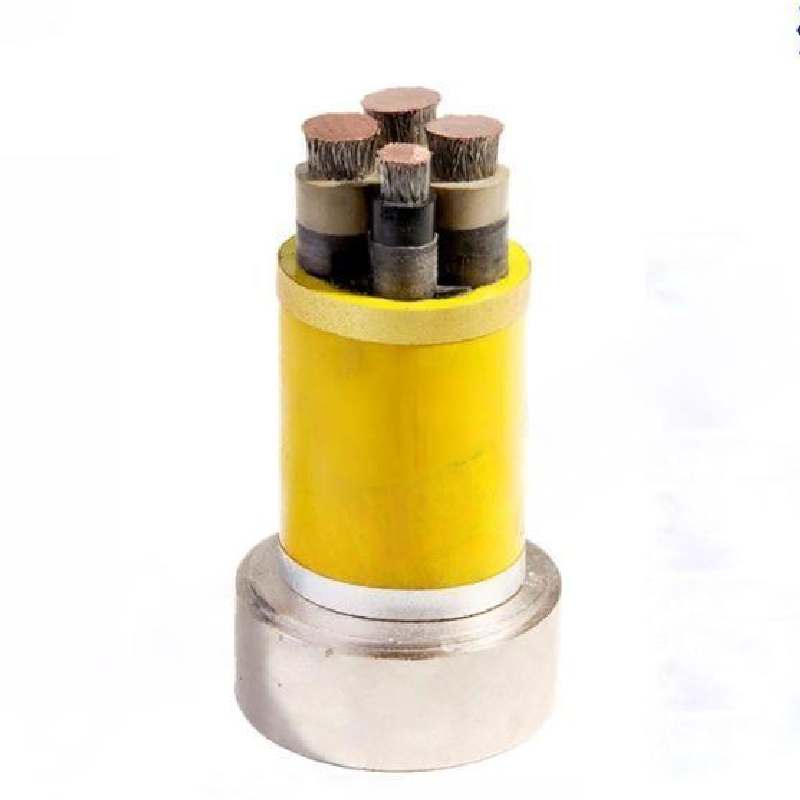10 月 . 22, 2024 00:01 Back to list
Optimizing Flow Control with Innovative Industrial Water Valve Solutions for Efficient Operations
Understanding Industrial Water Valves Essential Components for Fluid Control
In various industrial applications, the effective management of water resources is critical. Water valves play a vital role in controlling water flow, pressure, and distribution within industrial systems. Understanding the types of water valves, their functions, and their applications is essential for ensuring the efficiency and safety of operations in sectors such as manufacturing, agriculture, and wastewater management.
What is an Industrial Water Valve?
An industrial water valve is a mechanical device designed to regulate the flow of water within piping systems. These valves can open, close, or partially obstruct fluid flow to ensure the optimal functioning of processes requiring water. They are found in various systems including cooling systems, irrigation, and plumbing networks, and their designs can accommodate high pressure and flow rates, making them suitable for industrial environments.
Types of Industrial Water Valves
There are several types of water valves that are commonly used in industrial settings, each serving specific functions
1. Gate Valves Ideal for on/off control, these valves provide minimal flow resistance when fully opened. They are typically used in applications where the valve is either fully opened or fully closed, as they are not suitable for throttling.
2. Ball Valves Known for their durability and reliability, ball valves use a spherical disc to control flow. They are capable of providing a tight seal and can quickly open or close, making them favorable for processes requiring swift operation.
3. Globe Valves These valves are designed for throttling flow, allowing operators to regulate the rate of water flow. Their design includes a movable disk and a stationary ring seat, providing excellent control over flow rates.
4. Butterfly Valves Characterized by a disc that rotates to open or close the flow, these valves are lightweight and compact. They are commonly used for large volume water flow systems due to their ability to handle high flows with low-pressure drops.
5. Check Valves These are used to prevent backflow in piping systems. They allow water to flow in only one direction, which is crucial for protecting pumps and piping from damage caused by reverse flow.
industrial water valve

Important Applications
Industrial water valves are utilized across numerous sectors, each with unique demands
- Manufacturing Water valves are essential in cooling systems, where they regulate the flow of chilled water to machinery. They help maintain optimal operating temperatures, preventing overheating and equipment failure.
- Agriculture In irrigation systems, valves control water distribution to fields, ensuring efficient water usage and crop irrigation. This is particularly important in regions facing water scarcity.
- Wastewater Treatment Valves play a crucial role in managing the flow of wastewater through treatment facilities. They help in directing flow to various treatment processes, ensuring effective purification before discharge.
Choosing the Right Water Valve
Selecting the appropriate industrial water valve requires careful consideration of several factors
- Pressure Ratings Ensure the valve can withstand the maximum pressure of the system. - Temperature Ratings The valve material must be compatible with the operating temperature of the fluid. - Material Compatibility Consider the type of water (e.g., potable, non-potable, corrosive) to determine the suitable valve material. - Flow Characteristics Understand the required flow rates and pressure drops to choose the right valve type.
Conclusion
Industrial water valves are indispensable components in managing water resources efficiently within industrial operations. By understanding their types, functions, and applications, businesses can make informed decisions that enhance their operational efficiency and safety. As industries continue to prioritize sustainability and efficient resource management, the role of water valves will remain critical in achieving these goals. Whether in manufacturing, agriculture, or wastewater treatment, the proper application of industrial water valves can lead to significant improvements in productivity and environmental impact.
Share
-
Understanding the Differences Between Wafer Type Butterfly Valve and Lugged Butterfly ValveNewsOct.25,2024
-
The Efficiency of Wafer Type Butterfly Valve and Lugged Butterfly ValveNewsOct.25,2024
-
The Ultimate Guide to Industrial Swing Check Valve: Performance, Installation, and MaintenanceNewsOct.25,2024
-
Superior Performance with Industrial Swing Check Valve: The Essential Valve for Any SystemNewsOct.25,2024
-
Industrial Swing Check Valve: The Ideal Solution for Flow ControlNewsOct.25,2024
-
You Need to Know About Industrial Swing Check Valve: Functionality, Scope, and PerformanceNewsOct.25,2024